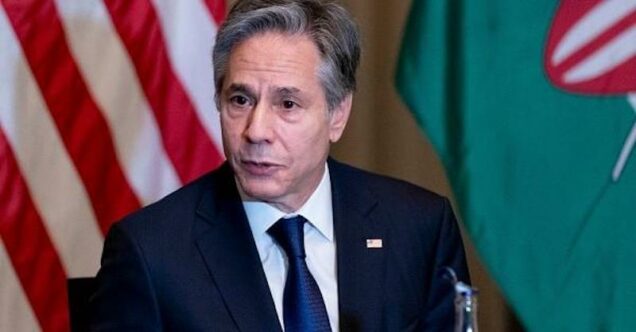
In a statement, US Secretary of State Antony Blinken said that over the past year, Beijing has “continued to take actions against Hong Kong’s promised high degree of autonomy, democratic institutions, and rights and freedoms.”
This crackdown, he said, includes the recent passage of “Article 23,” a national security law targeting treason, insurrection, espionage and theft of state secrets, among other crimes.
In response to “intensifying repression” and restrictions on “civil society, media, and dissenting voices,” the State Department “is taking steps to impose new visa restrictions on multiple Hong Kong officials,” the statement added.
Blinken did not elaborate on the visa measures to be taken, nor the officials to be targeted.
His announcement comes after Washington’s annual review of Hong Kong’s autonomy, a status promised by Beijing when Britain handed over the city in 1997.
“This year, I have again certified that Hong Kong does not warrant treatment under U.S. laws in the same manner as the laws were applied to Hong Kong before July 1, 1997,” Blinken said.
Washington has previously imposed visa restrictions and sanctions on Hong Kong officials it accuses of eroding the rights and freedoms that differentiate the city from the rest of China.
In 2020, the United States also revoked the financial hub’s special trade status in response to the quashing of 2019’s large, and at times violent, pro-democracy protests.
China’s foreign ministry representative in Hong Kong “strongly condemned” Washington’s latest move as smearing the new security law and interfering in China’s internal affairs.
The annual review of Hong Kong’s autonomy was “a farce that nobody was buying… and should be sent to history’s trash heap,” said a spokesperson for the Office of the Commissioner of the Ministry of Foreign Affairs.
In 2020, Beijing imposed a sweeping national security law on Hong Kong to quell the protests.
Article 23, which became effective last week, is an additional, homegrown national security law that officials said was needed to plug security loopholes.
Separately on Friday, the US government-funded news service Radio Free Asia said that it had closed its Hong Kong office after the enactment of the new law, citing concerns for the safety of its staff.
AFP





